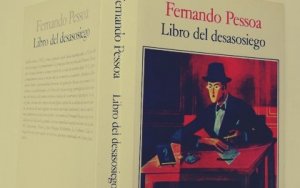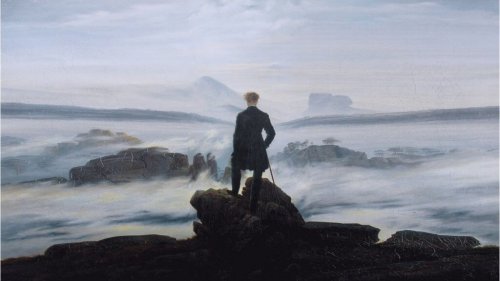Great Quotes from The Book of Disquiet

These quotes from The Book of Disquiet are true works of art. This wonderful text is considered Fernando Pessoa’s best book of prose and was published after his death. This book includes some fragments of his diary, short reflections, and adages.
The final edition of this book was published in 2010. Other versions had been published before that, but they included other people’s writings. The editors of the 2010 edition cleaned all of that up.
Below, we share some of the most beautiful quotes from this book.
Searching at random
The Book of Disquiet emphasizes that life is meaningless and existence is absurd. This quote reflects that perfectly: “I’m like someone searching at random, not knowing what object he’s looking for nor where it was hidden. We play hide-and-seek with no one”.
Pessoa writes that our human lives revolve around nothing. We don’t understand our purpose, and much less how to achieve it. We avoid other people who are in the same condition. For the poet, this is the game of life.

Ghosts
This is one of Pessoa’s most profound and beautiful quotes: “Changing from the ghosts of faith to the spectres of reason is just changing cells”. With these simple words, the poet takes on the two great concepts of Western thought: faith and reason.
As you know, these two worldviews have battled it out for centuries. Faith negates reason and reason negates faith. Pessoa defines them both as imaginary, but also as prison cells. They both limit your perspective and the way you think.
Nothing is perfect
Perfection is one of the most abstract and idealistic concepts that exist. It’s entirely the product of the mind and doesn’t correspond to any reality. To add insult to injury, humans want perfection but will never get it because nothing satisfies them.
One of the quotes from The Book of Disquiet says: “But everything is imperfect. There’s no sunset so lovely it couldn’t be yet lovelier, no gentle breeze bringing us sleep that couldn’t bring a yet sounder sleep”. In this quote, Fernando Pessoa emphasizes that human beings are never satisfied.
The beauty of useless things
“Why is art beautiful? Because it is useless. Why is life ugly? Because it is all ends and purposes and intentions. All its paths lead from one point to another. Would that there were a path made in a place where no one goes!”
Art doesn’t have any kind of practical meaning. It’s valuable for what it is, not for its usefulness. No one needs the Las Meninas to live their life, but looking at the painting makes them reflect. The world will keep spinning whether or not the Eiffel Tower stands, but the planet is more beautiful because it stands.
The opposite happens in ordinary life. Things and even people are only valuable if they offer good things. Human beings seek out only what’s useful. In these conditions, life stops being grand and sublime. That is what Pessoa is asking us to reflect on in this particular quote.

The orphan of fortune
The Book of Disquiet is the autobiography of Fernando Pessoa and includes many moving confessions of loneliness and neglect.
One of these intimate passages says: “I’ve always wanted to be liked. It grieved me that I was treated with indifference. Left an orphan by fortune, I wanted—like all orphans—to be the object of someone’s affection”.
Throughout the book, Pessoa defines himself as a failure who can’t find meaning. He is an orphan of fortune because he has even lost his desire to be happy.

Fernando Pessoa was one of the most important poets of all time. The Book of Disquiet shows us the complexity of his feelings and the sharpness of his reflections. Every sentence is a poem waiting for a sensitive reader like you to discover it.
All cited sources were thoroughly reviewed by our team to ensure their quality, reliability, currency, and validity. The bibliography of this article was considered reliable and of academic or scientific accuracy.
Pessoa, F. (2010). El libro del desasosiego (Vol. 101). Ediciones BAILE DEL SOL.
This text is provided for informational purposes only and does not replace consultation with a professional. If in doubt, consult your specialist.








